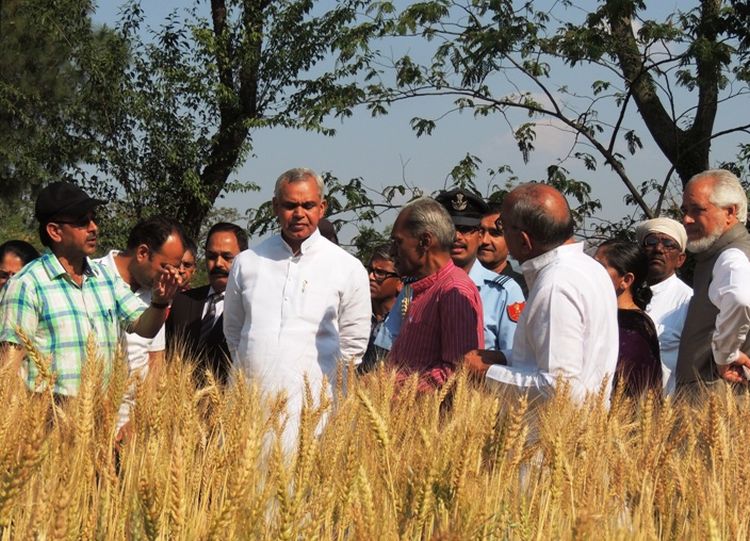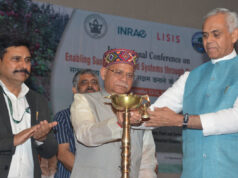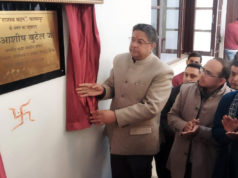
Palampur: Governor Acharya Devvrat said that ‘Zero Budget Natural Farming’ was a better option for making the Nation self-reliant in agriculture sector. He said that the produce out of natural farming helped not only in healthy living but was environment friendly too.
The Governor, while speaking at the seminar on ‘Zero Budget Natural Farming’ organized by CSK Agriculture University, Palampur, today, urged farmers to adopt natural farming (Rishi Kheti) for getting toxic free and nutritious food production.
Eminent scientist and Padmashree Dr. Subhash Palekar, who is a pioneer of ‘zero-budget spiritual farming’, was also present at the seminar.
The Governor urged the farmers to adopt traditional farming to enhance the quality of their produce and to get better prices in the market. He expressed concern over the use of pesticides and chemical fertilizers which not only diluted the health content in crops but also affected the fertility of the soil.
He called upon the scientists of the University to hold camps across the state to educate the farming community about traditional and natural farming and added that special awareness should be generated for adopting zero-budgeting for improving the existing agriculture practices in the State.
Padmashree Dr. Subhash Palekar, in his address, said organic farming was based on composting and vermin compost techniques which pollute the atmosphere, as the resultant manures were known to emit huge quantities of greenhouse gases (methane) and Fukuoka approach only leads to excessive weed growth in farms, affecting crop yields.
He said that his method largely draws from ancient Indian farming techniques, at the heart of which was a formulation called ‘Jiwamrita’. He said that the so-called modern agricultural practices taught at universities were, indeed, detrimental to farming. Dr. Palekar added
“The only terms that got repeatedly hammered in students’ minds were fertilizers, hybrid seeds, insecticides, irrigation, and deep trenches”
Dr. Palekar said that so deeply entrenched were these concepts that they made us unable to think beyond and practice anything other than chemical farming.
He explains, “The farmer needs to apply to the crop a dose of Jiwamrita — a fermented solution containing 200 litres water, 5-10 litres cow urine, 10 kg dung, 1 kg each of gur (jaggery) and besan (gram flour) for every acre. The other important thing is to spread a carpet of harvested crop residue between crop rows, which helps to absorb moisture from the atmosphere and also prevents emergence of weeds.”
Dr. Palekar clarifies that Jiwamrita basically nurtures thousands of bacteria essential for healthy crop growth. The urine and dung used in the formulation, he insists, should be from indigenous cattle: “one desi cow can nourish 30 acres”.
Vice-Chancellor KK Katoch, Director, extension Dr. PK Mehta, Director, Research Dr. SS Kanwar were also present at the seminar.













